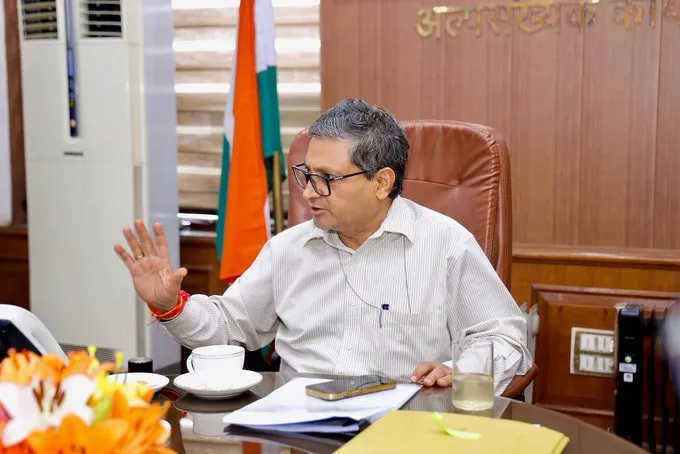The Ministry of Minority Affairs has initiated steps to enhance pilgrim facilities and infrastructure at Dargah Khwaja Saheb in Ajmer, one of India’s most significant religious and cultural sites. In a key review meeting held on 19th June 2025, senior ministry officials, members of the Indian Institute of Public Administration (IIPA), and representatives from the Dargah administration discussed the progress of an ongoing study aimed at assessing current infrastructure and future development needs.
The meeting was chaired by Dr. Chandra Shekhar Kumar, Secretary, Ministry of Minority Affairs. It included the participation of the Nazim of Dargah Khwaja Saheb, IIPA faculty members, and relevant administrative stakeholders.
Key Decisions and Objectives
The central outcome of the meeting was the decision to prepare a comprehensive action plan for the development of infrastructure and enhancement of pilgrim services at the Dargah. This plan is to be developed in coordination with all relevant government departments, IIPA researchers, the Dargah administration, and local authorities.
The initiative aims to ensure that the spiritual and historical sanctity of the site is preserved while improving crowd management, accessibility, sanitation, accommodation, digital services, and public amenities for millions of pilgrims who visit the Dargah annually.
Ongoing Study by IIPA
The Indian Institute of Public Administration is currently conducting a detailed study to evaluate various aspects of pilgrimage to the Dargah. This includes footfall patterns, bottlenecks in infrastructure, heritage conservation, and service delivery models. The findings from this study will form the evidence base for the upcoming action plan.
IIPA’s team presented interim observations during the review meeting, offering insights into immediate and long-term interventions required for enhancing the pilgrim experience and operational efficiency of the site’s management.
Stakeholder Collaboration
The Ministry emphasized that the success of the project hinges on inclusive consultation with all stakeholders. This includes religious authorities, municipal bodies, heritage conservation experts, and law enforcement agencies. A participatory approach will be adopted to align infrastructural upgrades with both administrative needs and the sentiments of the pilgrim community.
The role of the Nazim and the Dargah Committee will remain central in decision-making processes to maintain cultural authenticity and respect religious customs while executing modern improvements.
Broader Vision
This initiative is part of a larger vision to develop major pilgrimage sites across India under a sustainable and integrated development model. It reflects the government’s commitment to promote spiritual tourism, improve public amenities, and ensure that key heritage sites are equipped to handle increasing footfall without compromising on heritage preservation or visitor safety.
The Ministry of Minority Affairs, in partnership with IIPA and local stakeholders, is set to chart a transformative roadmap for Dargah Khwaja Saheb. The forthcoming comprehensive action plan will mark a significant step toward making the historic Dargah a model of heritage-sensitive development and pilgrim-friendly infrastructure.



